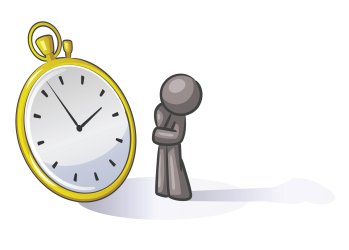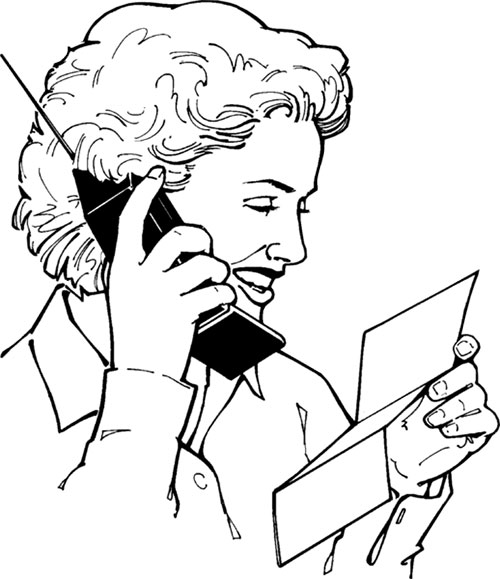Talking about the Past:
"Did" and "Have Done"
What did you do in your last job? What have you done in this job? Talking about work often means talking about the past. After all, we don't know what we will do in the future, so we stick to what we have done in the past.
 |
Click to get this lesson as an Adobe Acrobat file for printing or use in a class. |
When I teach English to beginners, I teach the past before I teach the future, because it's so good for small talk: What did you do on the weekend? What have you done this week? Where did you go on vacation? And what did you do there? Have you ever been to Paris?
Click Here for Step-by-Step Rules, Stories and Exercises to Practice All English Tenses
Two different "pasts"
If you look at what I've written so far, you'll see that I'm using two different "pasts." (There are more than two to choose from, of course, but we use two more than any other.)Sometimes I write "What did you do?" (that's the simple past) and sometimes I write "What have you done?" (that's the present perfect).
The biggest mistake you can make when talking about the past is to only use one or the other, or to use them interchangeably.
The two different pasts are used in different cases and they have different "feelings." Today we're going to talk about when to use the two different tenses. And in part two we'll talk about the different feelings.
Finished time
We use the simple
past (did, or -ed) when we talk about finished times. Of
course, then you might want to know what, exactly, is a finished time? A finished time is a time that is over. "Yesterday" is a finished time, because it isn't "yesterday" anymore. It isn't last month, 1998 or Christmas, anymore, either. So those are all finished times.
Take a moment and, on a piece of paper, write down as many finished times as you can think of in a few minutes.

-
Yesterday, I went into the city.
-
I hated broccoli when I was a kid.
-
My first car was blue.
-
We hiked a lot in Switzerland.

Notice that, in the examples, on the first one has a real time. "When I was a kid" is a time, but it's relative to me. And "my first car" certainly isn't a time. ("What time is it?" "My first car.") But my first car was a time in my life, and it's over. (I now have my second car. Though I liked the first one better.)
And "Switzerland," of course, isn't a time but a place! But when you read that sentence, do you need me to write "We hiked a lot in Switzerland, when we were in Switzerland."? Of course not! You understand that just from reading it. And, because I put hiked in the simple past, you know that I'm not in Switzerland anymore, or it wouldn't be a closed time, would it?
Remember, when you form a question in the simple past, you almost always use the helping verb "did." There are exceptions – times when you don't use "did" – but in 95% of questions, "did" is the word to use. Some examples of questions with closed times include:
-
What did you do last weekend?
-
Did you drive a lot, when you had your first car?
-
Where did you stay in Switzerland?
-
What did your boss say when you came to work late?

Do you still have the paper that you wrote your closed times on? For
each closed time, form a question. And then answer the questions.
Were you careful to use the simple past? See how easy English can be!
Unfinished times
Is "today" a
finished time? Of course not. You might be tempted to think that
it's the present, but there are a lot of things that I've done in the
past today. Breakfast was today, but it's past. The same is true for my morning shower. Today is an unfinished time. Unfinished times are times that aren't over, yet.
Besides today, this week, this month and this year are all times that are unfinished. But there are others, too. "Since I finished school" is an unfinished time and when you talk about what you've done at the job you have now, well, that's an unfinished time, too.
Think of as many unfinished times as you can in a minute or two and write them on the paper you used for your finished times.
When you talk about unfinished times, us the present perfect. The present perfect is sometimes called the "have past," because it's the form we form using "have" as a helping verb with the past participle of the main verb we're using. (If you think about eat, ate, eaten, "eaten" is the past participle.) Some examples are:
-
I have eaten breakfast already today.
-
We've talked about this twice before.
-
I haven't been to Paris since my high school trip.
-
How have you been?

Just like the simple past list above, you might notice that only one of the example sentences specifically includes an open time. In the first sentence, "today" is an open time. (Because today isn't over, yet.) The other sentences don't include a specific time, but are all in open times.
How do we know that the times are open? Look at the second example: "We've talked about this twice before." We don't know the context, but we know it's referring to something that is being discussed right now, as well as twice in the past, for a total of three conversations. And, since they're talking about it now, it's not over yet.
In the third example, we use the present perfect because "since my high school trip" is an open time. If I went on a trip in 1998, is right now since my high school trip? Of course. So is 2020. Any sentence using "since" should be in the present perfect.
The last example is more interesting. It includes no time references: "How have you been?" In this case, the verb form is the time reference. You might recognize the question as being the present perfect form of the question "How are you?" In the present form, "How are you?" asks how you're feeling at the moment.
After all, if you meet someone for the first time, you normally don't care about how he or she felt two years ago.
"How have you been?" on the other hand, asks about the present and the recent past. It's a question you can use with a friend you haven't seen in a while. If I meet an old friend from high school, I'm certainly interested in how he felt two years ago.
Now, with the open times you wrote down, how many questions and answers can you form? How many "open time" sentences can you think of that don't include a time reference?
Vocabulary:
Interchangeable: If a part on your car breaks, do you have to take the car back to the factory and wait while they make a new part? No, you go to a parts store and buy another part. The factory makes thousands of parts that all work exactly the same. The parts are interchangeable. Interchangeable refers to things that you can switch or swap out and not notice a difference. When you change the batteries is your radio, does your radio get different radio stations? No, the batteries all work the same. They're interchangeable. I use "unfinished time" and "open time" interchangeably in this grammar guide.
Tempted: Last year I quit drinking alcohol. Even thought it was something I wanted to do, every time I went shopping, something made me want to go look at beer and maybe take a case home. I was tempted to go and look at a beer. To tempt someone is to make them want – or think about – doing something that they don't want to do, or that they wouldn't normally do. A documentary can tempt you to travel somewhere exotic. Chocolate can tempt you when you're trying to lose weight. And quitting can seem tempting when you're trying to practice grammar.
Get Updates, Special Offers, and English Resources
Download your FREE GIFT (the first two chapters of
English Short Stories Book and Workbook)
as soon as you join!

By submitting your email, you consent to receiving updates and newsletters from us and to the sharing of your personal data with third parties for the purposes of sending you communications. We will not spam you. You can unsubscribe at any time. For more information, please see our privacy policy.





